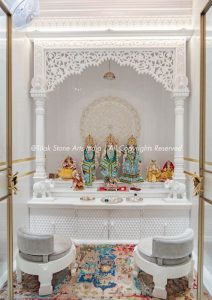Egypt has quietly become the luxury travel world’s best-kept secret – though not for much longer. The land of pharaohs and pyramids is shedding its budget backpacker image and emerging as the must-visit destination for the discerning traveler.
Egypt Key Tours reports that bookings for their premium packages have doubled in the past year alone. When asked why, their head of customer experience pointed to a perfect storm: new high-end accommodations, better accessibility, and travelers’ growing desire for experiences that combine cultural depth with five-star comfort.
What’s driving the luxury boom?
Let’s face it – travelers with means have grown weary of the same predictable circuit of tropical islands and European capitals. There’s only so many infinity pools overlooking generic beaches one can enjoy before craving something with more substance.
Egypt offers that rare combination – ancient wonder and modern indulgence.
The recent opening of several ultra-luxury properties has changed the game. The St. Regis Cairo, Four Seasons Alexandria, and Chedi El Gouna have raised standards across the board. But it’s not just about thread counts and spa treatments. The true luxury lies in experiences unavailable anywhere else on earth.
Imagine this: a private after-hours tour of Tutankhamun’s treasures at the Grand Egyptian Museum, followed by dinner on a terrace overlooking the Pyramids, illuminated just for you. Or maybe a helicopter journey from Cairo to Luxor, cutting a five-hour drive down to one hour of spectacular aerial views.
These aren’t hypothetical scenarios. These experiences exist now, reserved for those willing to pay for privacy and exclusivity.
The fear factor – has it changed?
For years, Egypt struggled with perception issues around safety. The Arab Spring and its aftermath cast a long shadow on tourism. But that shadow has lifted.
The luxury travel corridor – Cairo, Luxor, Aswan, and the Red Sea resorts – enjoys excellent security. Government authorities recognize tourism as vital to the economy and protect high-value visitors accordingly.
This isn’t to say Egypt is perfect. Like any destination, it has areas best avoided. But the parts relevant to luxury travelers are well-monitored and secure.
The bigger fear for many isn’t physical safety but fear of discomfort: the heat, the crowds, the hassle. This is where luxury travel shines. Private guides create buffers between you and potential annoyances. Air-conditioned vehicles wait while you explore. Exclusive access means avoiding crowds entirely.
One guest described their experience: “I visited the Valley of the Kings at 6 AM with just my guide. We were completely alone in Tutankhamun’s tomb for twenty minutes. By the time we left, there were hundreds of people queuing outside. That privacy was worth every penny.”
What Egypt offers that other luxury destinations can’t
Plenty of places have beautiful beaches and five-star hotels. What makes Egypt different?
First, there’s the history. Standing before the Great Pyramid of Giza or in the hypostyle hall of Karnak Temple creates a feeling that can’t be replicated. These aren’t just old buildings; they’re monuments from the very dawn of civilization.
Second, there’s the Nile. A private dahabiya (traditional sailing boat) cruise between Luxor and Aswan offers a rhythm of travel unlike anything else. Watching village life unfold along the banks, just as it has for thousands of years, while sipping champagne on your private deck… that’s hard to match.
Third, there’s the desert. Luxury desert camps now offer bubble tents with transparent roofs for stargazing from your bed, gourmet meals served among dunes, and spa treatments in the middle of nowhere.
The surprising side of Egyptian luxury
Many luxury travelers report the same unexpected highlight: the people. Egyptian hospitality runs deep, and those working in luxury tourism take particular pride in their roles.
Your private Egyptologist guide doesn’t just recite facts – they share their passion for their heritage. The chef doesn’t just cook you dinner – they teach you family recipes passed down through generations. The boat captain doesn’t just sail – he points out hidden spots along the Nile where his grandfather taught him to fish.
These human connections often become the most memorable part of an Egyptian luxury journey.
Are there drawbacks?
Nothing’s perfect. Egypt in summer can be unbearably hot, making December through April the prime season. This creates high demand and even higher prices during these months.
Some travelers find the contrast between tourist areas and everyday Egyptian life jarring. Poverty exists alongside luxury, as it does in many developing destinations.
Infrastructure, while improving rapidly, sometimes falls short of expectations. Even five-star hotels may experience occasional power fluctuations (though all have backup generators).
And yes, you might still encounter some hassle in public areas. No amount of money completely isolates you from the occasionally over-enthusiastic vendor or local guide seeking business.
But for many, these minor inconveniences fade against the backdrop of extraordinary experiences.
Who’s going?
The demographic might surprise you. While retirees with time and money make up one segment, a growing number are younger professionals in their 30s and 40s, often couples without children or families with teenage kids.
They’re well-traveled, culturally curious, and tired of posting the same beach photos as everyone else on social media. They want bragging rights to experiences their friends haven’t had.
Many combine Egypt with Jordan or Morocco for a more comprehensive Middle Eastern luxury circuit.
The price of exclusivity
Let’s talk numbers. A truly high-end 10-day Egyptian journey starts around $15,000 per person and can easily reach $25,000 or more.
What does that buy? Private guides throughout, exclusive access, the best rooms in five-star properties, internal flights instead of drives, meals at top restaurants, and those special moments that aren’t available to the average visitor.
Is it worth it? That depends on what you value. For those who can afford it, the privacy, comfort, and exclusive experiences justify the cost.
Looking ahead
Egypt’s luxury renaissance shows no signs of slowing. New museums are opening. Historic properties are being renovated into boutique hotels. Desert highways are improving, cutting drive times between destinations.
The Grand Egyptian Museum near the Pyramids, when fully opened, will be the largest archaeological museum in the world. Several international luxury hotel brands have projects under development.
Egypt has always had the raw materials for luxury travel – the monuments, the history, the natural beauty. Now it finally has the infrastructure and services to match.
For travelers seeking both substance and style, Egypt offers something increasingly rare: a true sense of discovery combined with genuine comfort. That’s a powerful combination in a world where truly unique experiences become harder to find each year.
After all, standing alone before the face of Ramses II or watching the sun rise over the Temple of Hatshepsut creates memories that last far longer than another day at a beach club, no matter how exclusive.
And maybe that’s the true luxury that Egypt offers – something beyond the material, something that stays with you long after the tan fades and the suitcases are unpacked.
Featured Image Source: https://pixabay.com/photos/egypt-papyrus-royals-1744581






